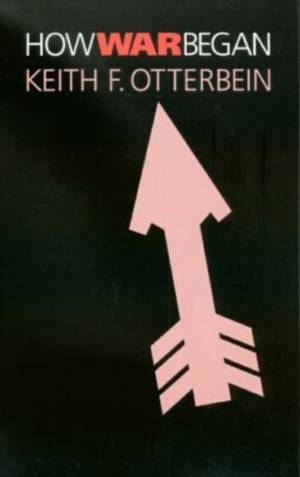
- Retrait gratuit dans votre magasin Club
- 7.000.000 titres dans notre catalogue
- Payer en toute sécurité
- Toujours un magasin près de chez vous
- Retrait gratuit dans votre magasin Club
- 7.000.000 titres dans notre catalogue
- Payer en toute sécurité
- Toujours un magasin près de chez vous
91,95 €
+ 183 points
Description
Have humans always fought and killed each other, or did they peacefully coexist until states developed? Is war an expression of human nature or an artifact of civilization? Questions about the origin and inherent motivations of warfare have long engaged philosophers, ethicists, anthropologists as they speculate on the nature of human existence. In How War Began, author Keith F. Otterbein draws on primate behavior research, archaeological research, data gathered from the Human Relations Area Files, and a career spent in research and reflection on war to argue for two separate origins. He identifies two types of military organization: one which developed two million years ago at the dawn of humankind, wherever groups of hunters met, and a second which developed some five thousand years ago, in four identifiable regions, when the first states arose and proceeded to embark upon military conquests. In carefully selected detail, Otterbein marshals the evidence for his case that warfare was possible and likely among early Homo sapiens. He argues from analogy with other primates, from Paleolithic rock art depicting wounded humans, and from rare skeletal remains with embedded weapon points to conclude that warfare existed and reached a peak in big game hunting societies. As the big game disappeared, so did warfare--only to reemerge once agricultural societies achieved a degree of political complexity that allowed the development of professional military organizations. Otterbein concludes his survey with an analysis of how despotism in both ancient and modern states spawns warfare. A definitive resource for anthropologists, social scientists and historians, How War Began is written for all who are interested in warfare and individuals who seek to understand the past and the present of humankind.
Spécifications
Parties prenantes
- Auteur(s) :
- Editeur:
Contenu
- Nombre de pages :
- 310
- Langue:
- Anglais
- Collection :
- Tome:
- n° 10
Caractéristiques
- EAN:
- 9781585443291
- Date de parution :
- 07-12-04
- Format:
- Livre relié
- Format numérique:
- Genaaid
- Dimensions :
- 155 mm x 241 mm
- Poids :
- 598 g

Les avis
Nous publions uniquement les avis qui respectent les conditions requises. Consultez nos conditions pour les avis.






